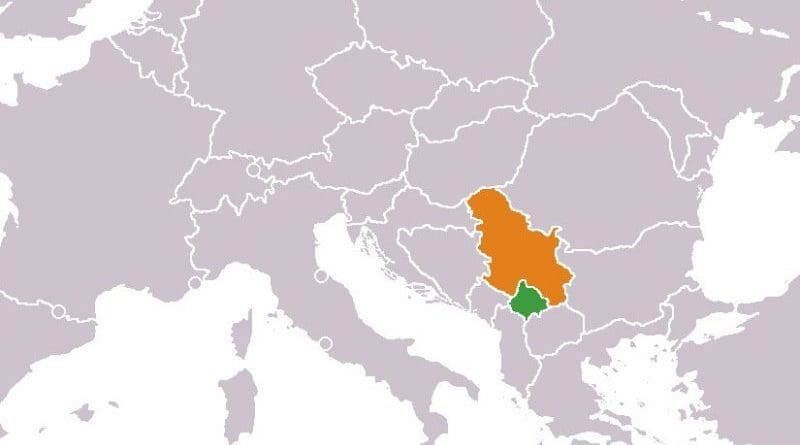Kosovo, Serbia Sign First Deal Since War
By EurActiv
For the first time since the former province of Kosovo seceded from Serbia and declared its independence, Belgrade and Pristina reached an agreement on Saturday (2 July) aimed at making the daily lives of people on both sides easier.
Under the mediation of Catherine Ashton’s European External Action Service (EEAS), negotiating teams from both countries reached agreement on a series of charters that should improve bilateral relations.
The agreement, signed over the weekend, relates to the civil register, freedom of movement and recognition of university diplomas. The two sides also came closer to seeing eye-to-eye on issues like telecommunications, land registry, customs seals and energy.
The agreements were hammered out during a Brussels meeting between Borislav Stefanović, a political director at the Serbian Foreign Ministry, and Edita Tahiri, Kosovo’s chief negotiator. The meeting, the fifth of its kind, was overseen by top EEAS official Robert Cooper.
Regarding the civil registry, a joint committee already established and chaired by the EU’s law enforcement mission in Kosovo, EULEX, will continue identifying missing entries from the period preceding the 1998-1999 war, according to a statement published after the meeting (see ‘Background’).
EULEX is tasked with certifying copies of all original civil registry books with a view to establishing a comprehensive civil registry in Kosovo. Upon the request of the Serbian authorities, EULEX will provide specific civil registration information from Kosovo, the agreement reads.
The second deal concerns travel of individuals between the two sides. Citizens will now be permitted to cross the border or “administrative line,” as it is referred to by the Serbian authorities, with personal identity cards, proof of vehicle insurance and cars with “the correct licence plates”.
Until now, Serbia has prevented travellers with Kosovar documents or registration plates from entering the country. Before entering Serbian territory, Kosovar truck drivers have had to pull over into a no-man’s land to change their licence plates and hide their Kosovo documents before showing a different set to Serbian officials.
On education matters, the two sides broadly agreed on how to treat each others’ university and school diplomas. The solution there would be to choose a mutually acceptable international agency or academic institution for certification.
Serbia: Deal is not a recognition of Kosovo
Stefanović said in Belgrade the agreement reached with Pristina was “neither an explicit nor implicit recognition of Kosovo”.
Reportedly, his Kosovar colleague Edita Tahiri made statements claiming that Serbia had actually taken steps towards recognising Kosovo’s independence.
Stefanović commented that Tahiri’s reasoning was motivated by ethnic Albanian politics and the huge pressure applied by the opposition in Kosovo.
He admitted, however, that the agreement signified that better times lay ahead for Serbs living south of the Ibar River, and that Serbs in Kosovo had also been granted freedom of movement.
Stefanović stressed that the Serbian state would not stop performing “its functions in Kosovo,” including issuing personal documents and licence plates to Serbs living in Kosovo.

